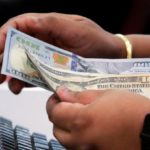 Shoppers who oppose a tax may cut their spending on the taxed product more than those who support it, according to a new study by researchers from Johns Hopkins Carey Business School and the University of Toronto’s Rotman School of Management.
Shoppers who oppose a tax may cut their spending on the taxed product more than those who support it, according to a new study by researchers from Johns Hopkins Carey Business School and the University of Toronto’s Rotman School of Management.
The study, which analyzed the short-lived 2010 soda tax in Washington state, is the first to show that opposition to a tax can lead to significant changes in consumption. Shoppers who opposed the soda tax reduced their soda purchases far more than supporters—a striking example of behavioral economics at work.
Key Findings
Using precinct-level voting data combined with store-level soda sales from NielsenIQ, the researchers tracked consumer behavior before, during, and after the tax, which was repealed by voters after just five months. They found:
- A “rebellious” response: Stores frequented by tax opponents saw soda sales drop 53% more than those patronized by supporters.
- Uniform price increases: The tax was passed through evenly across all stores, meaning both groups faced the same price hike.
The researchers suggest that opponents of the tax reduced their purchases to avoid funding a policy they disagreed with, undermining the tax’s revenue-raising potential.
Implications for Policymakers
The findings highlight the importance of public sentiment in the effectiveness of consumption taxes. Policymakers should consider polling and experiments to gauge how different groups might respond to a proposed tax. Misjudging these responses could result in setting tax rates too high, leading to lower-than-expected revenue.
“When opposition is strong, a consumption tax might bring in far less money than anticipated,” the researchers explain.
The study’s insights extend beyond soda taxes. Opposition to tariffs, for example, could lead to similar behavior. Consumers who oppose a tariff may cut their spending on imported goods more than supporters, further reducing imports and potentially accelerating domestic production shifts.
For policymakers, the takeaway is clear: public support matters. Without it, even well-designed taxes can backfire, prompting unexpected behavioral responses that undermine their goals.